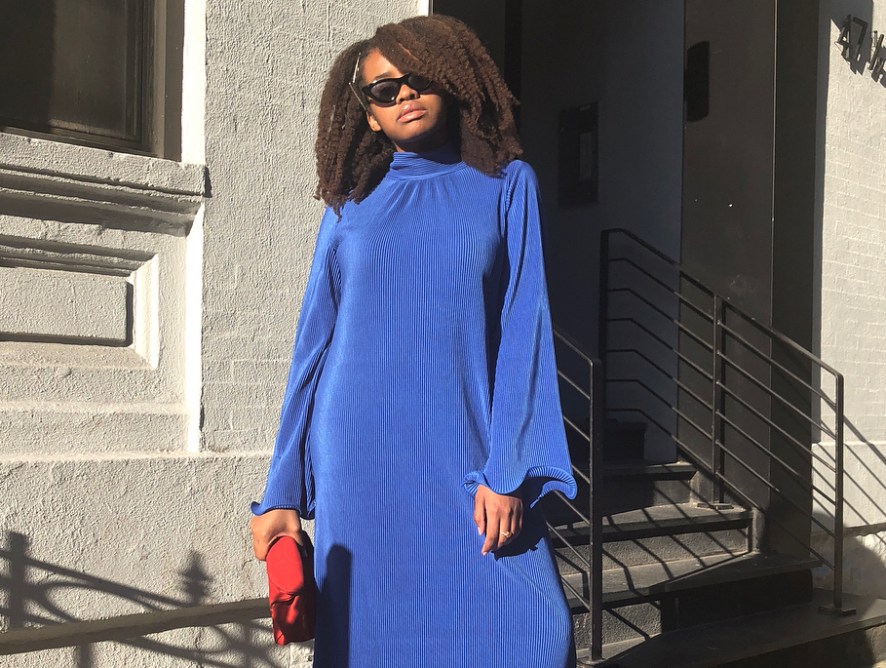I’ve always considered a career in fashion to be a very viable option. As someone who chose to study business, I thought it would be easy for me to transition into the industry because of how transferable my skills would be. Who wouldn’t need a fashion marketer with a great understanding of analytics? However, I was unpleasantly surprised to learn that I was a bit too optimistic.
The nature of business school doesn’t usually allow you to earn credits for fashion-related internships. This makes gaining work experience in fashion (an industry that heavily values work experience) harder, and leaves many of us confused and frustrated. Thankfully, there are people who have worked through similar situations but now find themselves thriving in fashion-related careers. I reached out to two such women to share their stories and motive you to achieve your career goal.
Understand the Value of Your Education
For Evie Begy, the collab director at The Kit, the choice to go into business was simple. She’d always had an aptitude for numbers and from a young age understood that life was expensive, so she needed a degree that would allow her to succeed in various contexts. This recognition led her to pursue a bachelors and masters at the London School of Economics and Political Science in Managerial Economics and Strategy, and International Management, respectively.
Like me, Evie had always thought that her practical degree would be an asset. “When I first graduated, I thought that a transition from finance into fashion and business into beauty seemed super logical; I felt as though I had a strong foundation and easily transferable skills,” says Evie. Unfortunately, many recruiters and talent acquisition managers have a slightly different perspective. She explains, “In fashion, there are hundreds of applicants with direct experience in the industry. Sure, I had a passion for fashion, but my résumé looked like someone who was desperate and applying for any job under the sun; I studied econ and interned at banks.” Eventually, Evie found her place in the industry and values her educational path because she is back to working with numbers in her current role at The Kit. A unique academic background does give you an edge and conveying confidence in your knowledge to employers will allow you to stand out, so find a way to explain that in your résumé and your interview.
Networking is Crucial
In any industry, it’s important to take risks, be creative, and speak to people who have the types of jobs you want. Being bold paid off for Evie when she landed her first fashion job as a marketing and communications intern at a women’s lifestyle group. “I wanted to work in media, so I cold called the reception desk at St. Joseph Media and asked if they were hiring coordinators, assistants, interns—any job, any role!” she says.
Evie explains that her conversations with industry insiders were super valuable as they allowed her network within the field and gave her insight into the steps she should take to succeed. “Through a series of serendipitous events, I had a family friend who heard I was looking for a job, and she set up an exploratory interview with a publisher. One month later, that conversation landed me a life-changing internship at The Kit,” she says. Five years later, Evie is proud to say that she is now the collab director at The Kit, Torstar’s multi-platform beauty and fashion media brand. Getting to know people within the fashion sphere is extremely important as building meaningful connections can open the door to a variety of job opportunities.
Explore Your Other Interests
Erica Salvatore, Adidas Brand Communications Manager for Running Women’s and Training (Canada) had a slightly different story. She did not necessarily want to work in fashion, but it was her passion for sports that led her there. “I knew pretty early on that I wanted to study business… I was drawn towards subjects like math, economics, and marketing,” says Erica. However, she also found herself interested in the strategy behind athlete and sponsorship deals, sports marketing, and the influence sports can have on other industries.
“Coming out of university, Adidas was the goal—I applied online to a position in eCommerce and was fortunate enough to get an interview and ultimately get hired,” says Erica. As of now, she has been with the brand for six years and loves every day of her job. When looking for a career in fashion, be sure to consider your other interests because this can help narrow down the type of company you want to work for and that passion will make you a more appealing candidate to certain brands.
Keep An Open Mind
It’s important to remember that our first jobs will likely not be what we had always pictured ourselves doing. Erica’s career started in eCommerce which was a domain she did not originally plan to work in, but this opportunity led her to learn about both the digital and e-retail side of the business. “I spent several years developing within that space, and the knowledge and experience I gained helped me to prepare for the next chapter of my career.” Her current role gives her a unique opportunity to work in various facets of marketing and she is truly passionate about what she does. Early on in our careers, it’s crucial to remain open to exploring various aspects of the fashion industry and learn how to apply our degrees in various contexts.
What challenges have you faced trying to break into fashion with an unrelated degree? Share your experience with us below!
Opening image by Naomi Parris.


